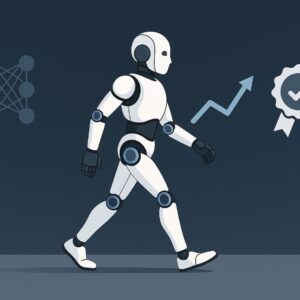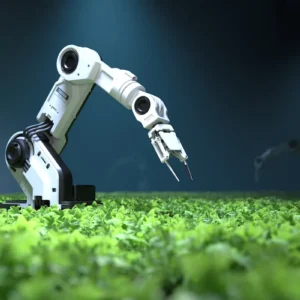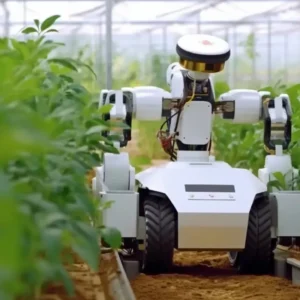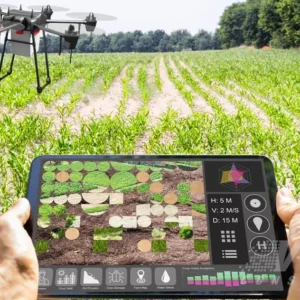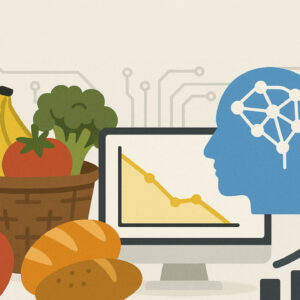Introduction: A Taste of Innovation
Artificial Intelligence (AI) is reshaping industries globally, and food processing is no exception. From improving quality control to reducing waste, AI is transforming how we produce, package, and distribute food. By integrating AI, food manufacturers can achieve precision, efficiency, and sustainability—vital in meeting the growing demands of a global population. This article explores how AI is revolutionizing food processing, its practical applications, benefits, challenges, and future potential. With each breakthrough, AI is redefining what’s possible in an industry that touches billions of lives every day.
AI in Quality Control: Ensuring Perfection
One of the most significant applications of AI in food processing is quality control. Traditional quality checks rely heavily on human intervention, making them prone to inconsistencies and inefficiencies. AI-powered systems, such as computer vision, can detect defects in products like bruised fruits, miscolored candies, or irregularly shaped biscuits with remarkable accuracy. These systems use machine learning algorithms trained on vast datasets to recognize patterns and anomalies in real-time. For example, AI can analyze images of food products on a production line, instantly identifying imperfections that might compromise quality. Moreover, AI-driven systems can work continuously, unlike human inspectors, ensuring that every product meets stringent quality standards. This not only enhances consumer satisfaction but also reduces the likelihood of recalls, saving companies significant costs and reputational damage. By leveraging AI, food manufacturers are setting new benchmarks for quality and consistency, raising consumer expectations and industry standards alike.
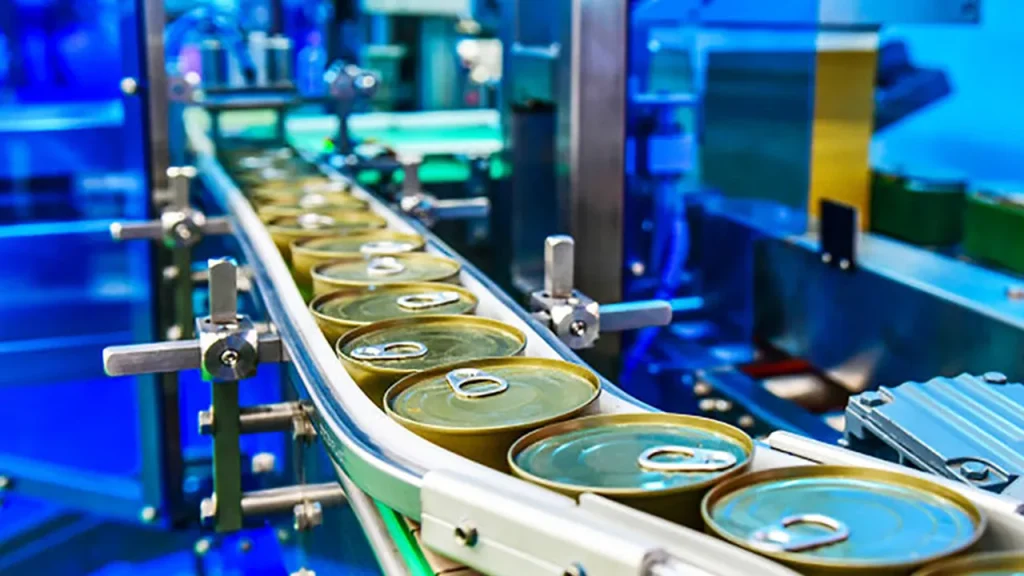
Streamlining Supply Chains with AI
The food industry’s supply chain is complex, involving multiple stages—from sourcing raw materials to delivering finished products to consumers. AI plays a critical role in streamlining these processes. Predictive analytics, powered by AI, helps companies forecast demand more accurately, reducing overproduction and waste. Machine learning algorithms analyze historical sales data, market trends, and external factors like weather conditions to optimize inventory management. Additionally, AI-powered logistics systems improve route planning for deliveries, ensuring timely distribution while minimizing fuel consumption. For instance, some companies use AI to monitor real-time traffic conditions and dynamically adjust delivery routes, enhancing efficiency and reducing costs. AI also aids in monitoring the condition of perishable goods during transit. Sensors integrated with AI systems can track temperature, humidity, and other factors, ensuring that food remains fresh upon arrival. These advancements make supply chains more resilient and sustainable, addressing critical challenges in today’s food processing industry. Moreover, by automating complex logistics, AI reduces the manual effort required, freeing up resources for strategic tasks.
Enhancing Food Safety with AI
Food safety is a paramount concern for manufacturers, regulators, and consumers alike. AI is making significant strides in detecting and preventing foodborne illnesses. Advanced AI algorithms analyze vast amounts of data from various sources, including sensor readings, production records, and laboratory tests, to identify potential contamination risks. For example, AI can predict the likelihood of bacterial growth based on environmental conditions in a production facility. AI-powered systems can also detect contaminants in food products during processing. Spectral imaging technologies combined with AI algorithms can identify foreign objects like plastic or metal fragments in packaged goods. Furthermore, AI assists in ensuring compliance with food safety regulations by automating the monitoring and documentation of critical control points in the production process. This reduces the risk of human error and enhances accountability. By integrating AI into food safety protocols, manufacturers can protect public health, build consumer trust, and avoid costly legal penalties. The ability of AI to preemptively address potential risks ensures a proactive approach to food safety, minimizing disruptions in the supply chain.
Optimizing Production Processes
Efficiency is key in food processing, and AI is driving significant improvements in production workflows. AI-powered automation systems handle repetitive tasks like sorting, grading, and packaging with speed and precision. For example, robotic arms equipped with AI algorithms can sort fruits based on size, color, and ripeness faster than manual methods. Machine learning models also optimize production schedules by analyzing factors such as equipment availability, workforce shifts, and order deadlines. Additionally, AI-powered predictive maintenance systems monitor machinery performance in real time, identifying potential issues before they lead to breakdowns. This minimizes downtime and ensures uninterrupted production. AI also plays a role in recipe optimization. By analyzing consumer preferences and ingredient costs, AI systems suggest adjustments to recipes that maintain taste and quality while reducing production costs. These innovations make production processes more agile and responsive to market demands, giving manufacturers a competitive edge. Moreover, the integration of AI in production ensures scalability, allowing manufacturers to meet growing consumer demands without compromising quality.
Reducing Food Waste with AI
Food waste is a global issue, with significant environmental and economic implications. AI offers innovative solutions to tackle this problem. Machine learning models analyze data from production lines to identify inefficiencies that contribute to waste. For instance, AI can pinpoint excessive ingredient usage, enabling manufacturers to adjust their processes and minimize losses. AI-powered inventory management systems also reduce waste by predicting optimal stock levels and expiration dates. In retail settings, AI-driven demand forecasting helps prevent overstocking perishable goods, while dynamic pricing algorithms encourage consumers to purchase items nearing their expiration dates. Additionally, AI is instrumental in repurposing surplus food. Algorithms analyze nutritional content and match surplus ingredients with potential uses, such as creating new products or donating to food banks. By addressing waste at every stage of the supply chain, AI contributes to a more sustainable food processing industry. The long-term environmental benefits of these AI-driven solutions are immense, aiding in the global effort to combat climate change.
Customizing Consumer Experiences
In today’s competitive market, personalization is key to winning consumers’ loyalty. AI enables food manufacturers to tailor their offerings based on individual preferences and dietary needs. Machine learning algorithms analyze consumer data, such as purchase histories and feedback, to identify trends and preferences. This information helps manufacturers develop new products that cater to specific tastes and health requirements. For example, AI can identify a growing demand for plant-based protein snacks and guide manufacturers in formulating innovative recipes. Besides food processing, AI also enhances marketing strategies by delivering personalized recommendations and promotions to consumers. Chatbots powered by natural language processing assist customers in selecting products that align with their preferences. Furthermore, AI-driven packaging solutions provide consumers with real-time information about product origins, nutritional content, and recipes, enhancing transparency and engagement. By leveraging AI to customize consumer experiences, food manufacturers can build stronger brand loyalty and drive sales growth. Personalized interactions foster deeper connections between consumers and brands, enhancing long-term customer retention.
Challenges in Adopting AI in Food Processing
Despite its transformative potential, integrating AI into food processing comes with challenges. High implementation costs are a significant barrier, particularly for small and medium-sized enterprises. Developing and maintaining AI systems requires substantial investment in technology, infrastructure, and skilled personnel. Data quality and availability also pose challenges. AI models rely on accurate, comprehensive data to function effectively, but inconsistencies or gaps in data can compromise their performance. Moreover, integrating AI with existing systems often requires significant adjustments and employee training. Cybersecurity is another concern, as increased digitization exposes manufacturers to potential data breaches and cyberattacks. Ethical considerations, such as ensuring fairness and avoiding bias in AI algorithms, must also be addressed. Overcoming these challenges requires collaboration between industry stakeholders, policymakers, and technology providers to create affordable, reliable, and secure AI solutions tailored to the food processing industry. A commitment to innovation and adaptability will help mitigate these challenges, paving the way for broader AI adoption.
The Future of AI in Food Processing
The future of AI in food processing is promising, with ongoing advancements poised to drive further innovation. Emerging technologies, such as edge AI and 5G connectivity, will enable faster, more decentralized decision-making on production lines. AI-powered robotics will become increasingly sophisticated, performing complex tasks like assembling intricate food products or handling delicate items without damage. Additionally, AI will play a pivotal role in advancing sustainability efforts. For example, blockchain technology combined with AI will enhance traceability, ensuring ethical sourcing and reducing environmental impact. The integration of AI with the Internet of Things (IoT) will enable real-time monitoring of food production and distribution, enhancing efficiency and safety. As AI becomes more accessible and affordable, its adoption across the food industry will accelerate, benefiting manufacturers, consumers, and the planet. By embracing AI, the food processing industry can address global challenges, from feeding a growing population to combating climate change. The synergy between technological innovation and sustainability will redefine the industry’s future.
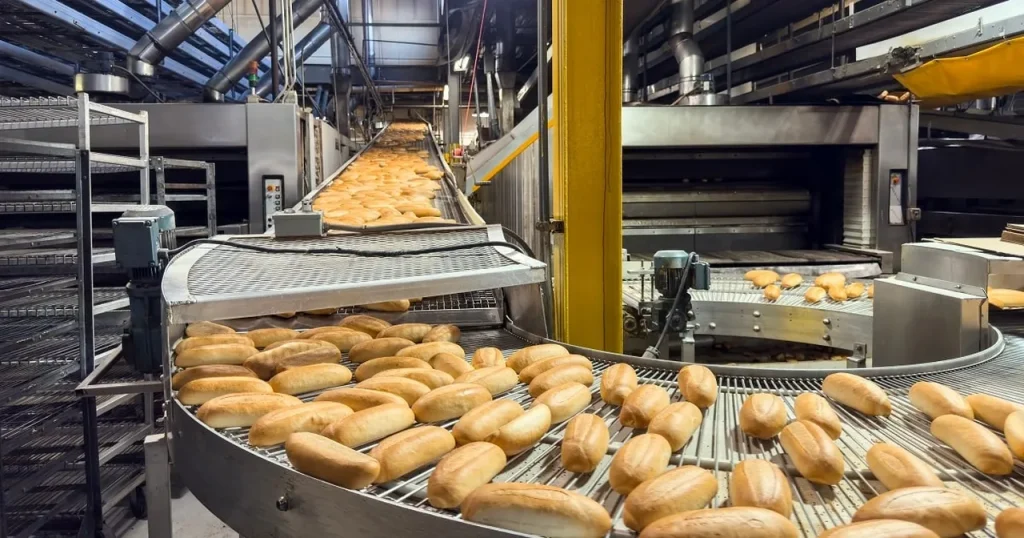
Conclusion: A Recipe for Success
AI is revolutionizing food processing by improving quality, enhancing efficiency, and promoting sustainability. From quality control and supply chain optimization to food safety and waste reduction, AI applications are transforming every aspect of the industry. While challenges remain, the potential benefits far outweigh the hurdles, making AI an indispensable tool for modern food manufacturers. As the technology continues to evolve, its impact on the food industry will grow more, shaping a future where innovation and sustainability go hand in hand. By harnessing the power of AI, the food processing industry is not just keeping up with the times but leading the way toward a smarter, more sustainable future. The innovations AI brings will continue to serve as a foundation for addressing the food industry’s most pressing challenges, ensuring progress that benefits all stakeholders.



